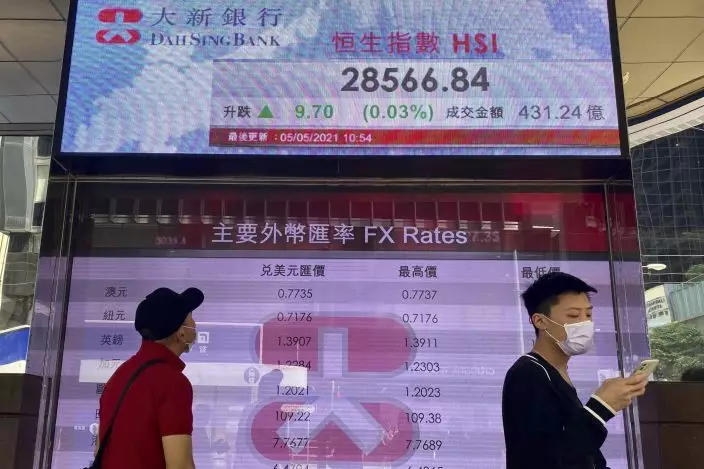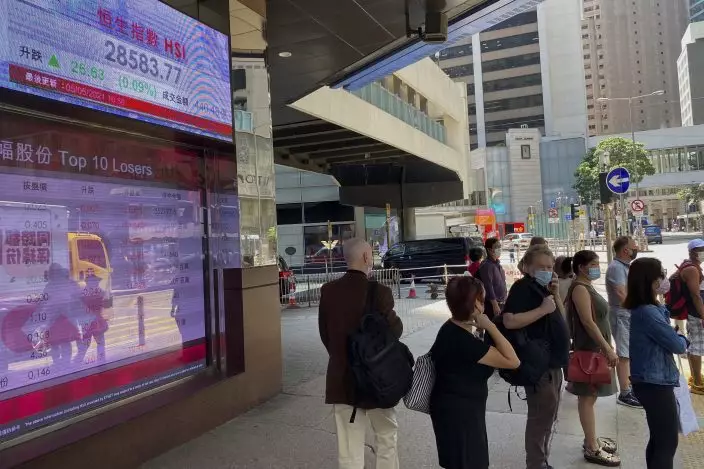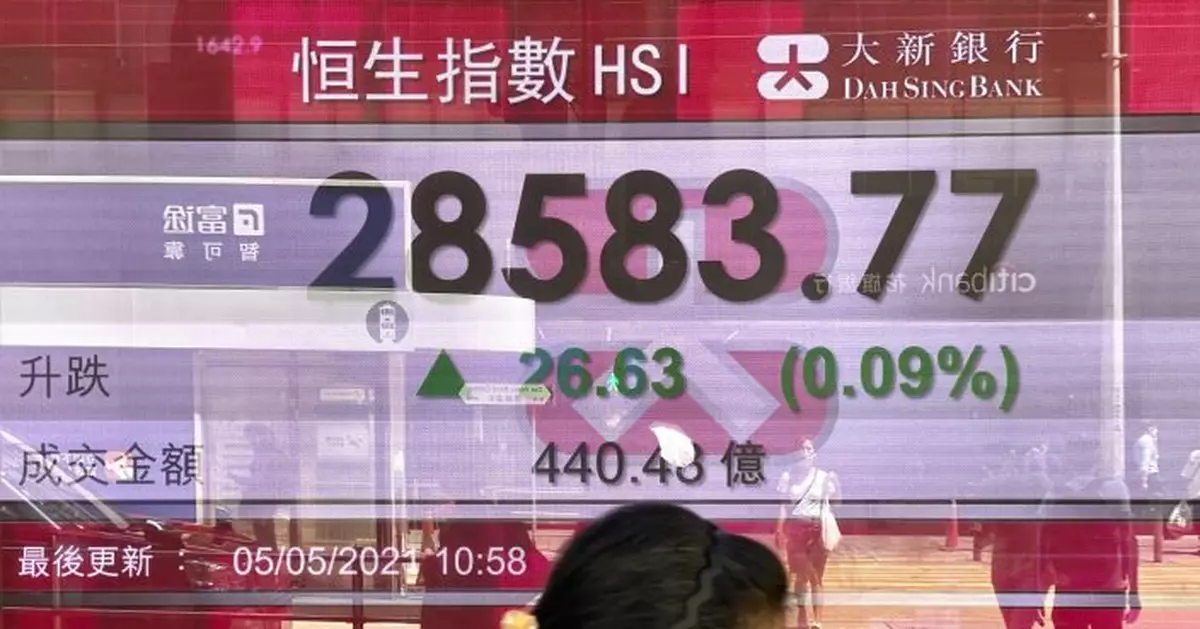Asian stock markets were mixed Wednesday in light trading while China and Japan were closed for holidays.
Hong Kong declined while Sydney and India advanced following Wall Street's overnight fall. New Zealand and Southeast Asian markets retreated.
Wall Street's benchmark S&P 500 index lost 0.7%, dragged down by more declines for tech stocks including Apple and Microsoft.

People walk past a bank's electronic board showing the Hong Kong share index at Hong Kong Stock Exchange in Hong Kong Wednesday, May 5, 2021. Major Asian stock markets advanced Wednesday after Wall Street fell, while Chinese and Japanese markets were closed for holidays. (AP PhotoVincent Yu)
The Hang Seng in Hong Kong lost 0.6% to 28,397.29 while the S&P-ASX 200 in Sydney rose 0.4% to 7,094.90.
India's Sensex opened up 0.4% at 48,454.09. New Zealand's benchmark lost 0.4%, Singapore shed 1% and Bangkok tumbled 1.8%.
“With relatively light newsflow and macro data, price action in the region was subdued in holiday-thinned conditions,” said Anderson Alves of ActivTrades in a report.

People walk past a bank's electronic board showing the Hong Kong share index at Hong Kong Stock Exchange in Hong Kong Wednesday, May 5, 2021. Major Asian stock markets advanced Wednesday after Wall Street fell, while Chinese and Japanese markets were closed for holidays. (AP PhotoVincent Yu)
Investors are watching corporate earnings and looking ahead to Friday's U.S. jobs data.
Most economic indicators point to improving conditions, but investors are worried about renewed coronavirus outbreaks and a possible uptick in inflation.
Remarks by Treasury Secretary Janet Yellen appeared to stoke those worries. Selling on Wall Street accelerated after Yellen said interest rates may have to rise to keep the economy from overheating. She later downplayed her comments during an interview with The Wall Street Journal after markets closed.
Earlier, Federal Reserve Chairman Jerome Powell said Monday the economic outlook has “clearly brightened” in the United States but the recovery is uneven.
The S&P 500 declined to 4,164.66. The index hit an all-time high last Thursday.
The technology-heavy Nasdaq Composite dropped 1.9%, to 13,663.50.
The Dow Jones Industrial Average added 0.1% to 34,133.03.
Apple fell 3.5% and Facebook slid 1.3%. Google’s parent company dropped 1.5% and Amazon lost 2.2%.
More than half of the companies in the S&P 500 have reported their results so far this earnings season, which show profit growth of 54%, according to FactSet.
Economists expect U.S. data due out Friday to show employers hired 975,000 workers last month as the economy accelerated out of the pandemic and vaccines rolled out nationwide. The unemployment rate is expected to drop to 5.8% from 6%.
In energy markets, benchmark U.S. crude gained 55 cents to $66.24 per barrel. The contract rose $1.20 on Tuesday to $65.69 a barrel. Brent crude, used to price international oils, added 59 cents to $69.47 per barrel in London. It advanced $1.32 cents the previous session to $68.88 a barrel.
The dollar rose rose to 109.39 yen from Tuesday's 109.30 yen. The euro rose to $1.2013 from $1.2009.


